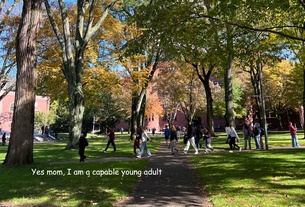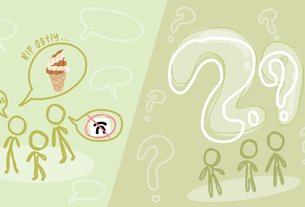“[Weil] was an extremely funny person,” Hertzberg said. “[He was] a part of a group of people who went on to create the National Lampoon and Saturday Night Live, making American humor as we know it.”
MEDICINE AND A MELDING OF INTERESTS
During his time as an undergraduate, Weil was exposed to the polarizing debate over the use of psychedelic drugs at Harvard. In 1962, the controversial research of Timothy Leary and Richard Alpert, who administered drugs such as LSD and psilocybin to Harvard students in the Harvard Psilocybin Project, was uncovered.
Though Weil was influenced by psychedelic culture, he ultimately chose to combine his interest in alternative medicine with traditional medicine. Weil said he had an intuition that a degree in medicine would prove useful to him.
“I wanted a medical education as a better way of understanding human beings,” he said.
Weil’s choice of medicine was also motivated by a desire to field questions about his post-graduation plans and, amidst growing anti-war sentiment, a way to avoid the draft.
After completing his medical degree, Weil moved to Washington, D.C. to work at the National Institute of Mental Health for one year, but his interests broadened and he became increasingly interested in therapeutic plants and natural medicine.
From 1971-1975, Weil traveled extensively in North America, South America, and Africa to study the use of plants as medicine and alternative forms of healing in other cultures. He also served on the staff of the Harvard Botanical Museum from 1971-1984, furthering his study of medicinal plants.
Nearly a decade out of college, in 1973, Weil and a few friends convened in Bogota to see a solar eclipse. According to Jay M. Pasachoff ’63, who traveled with Weil, his friends came away from that trip with a better understanding of his interests in botany and medicinal plants, which he was willing to try, and about his controversial beliefs about the body’s ability to heal itself. They learned there that he wanted to start a movement in medicine.
Weil went on to establish the field of integrative medicine, which one author on Drweil.com defined as “healing-oriented medicine that takes account of the whole person (body, mind, and spirit), including all aspects of lifestyle. It emphasizes the therapeutic relationship and makes use of all appropriate therapies, both conventional and alternative.”
Though Weil never became a practicing physician, he used his medical background to pursue its convergence with alternative methods.
“It just happened as a result of following my own truth,” Weil said.
CHANGE THROUGH CELEBRITY
Weil built a brand for himself, selling scores of books, launching a website, and creating his own line of health supplements, all bearing the recognizable image of his white-bearded face. He also continues to serve as the director of the Center for Integrative Medicine, which he founded in 1994, at the University of Arizona’s college of medicine.
The publication of Weil’s first international bestseller “Spontaneous Healing” in 1995 made him a household name and was the beginning of his renown as a proponent of holistic medicine.


